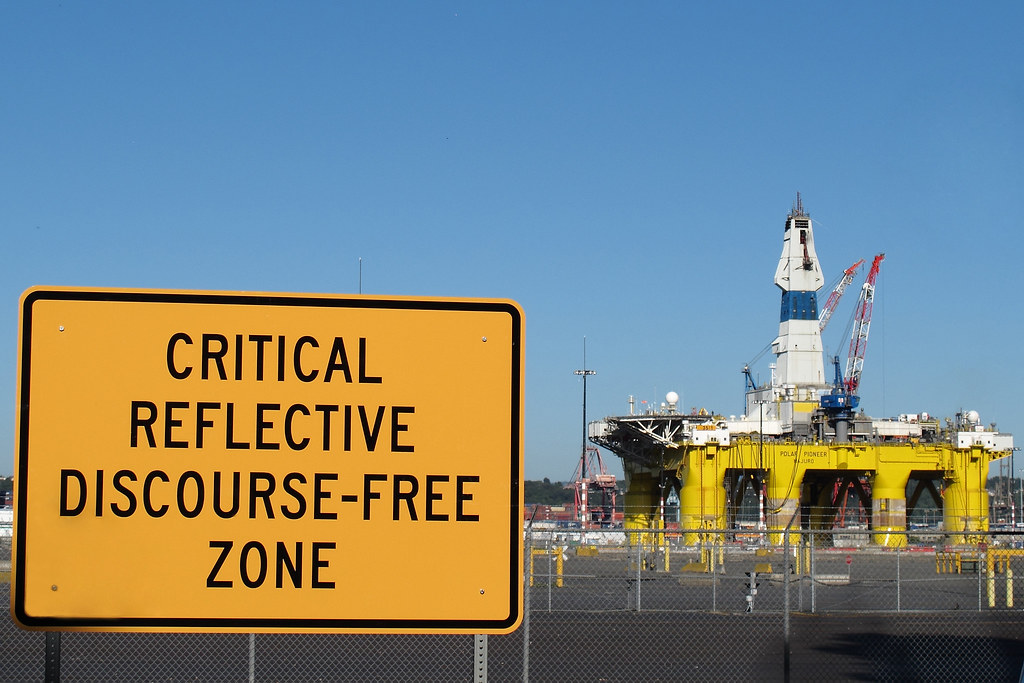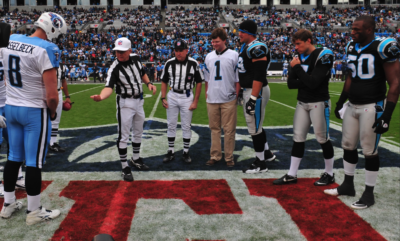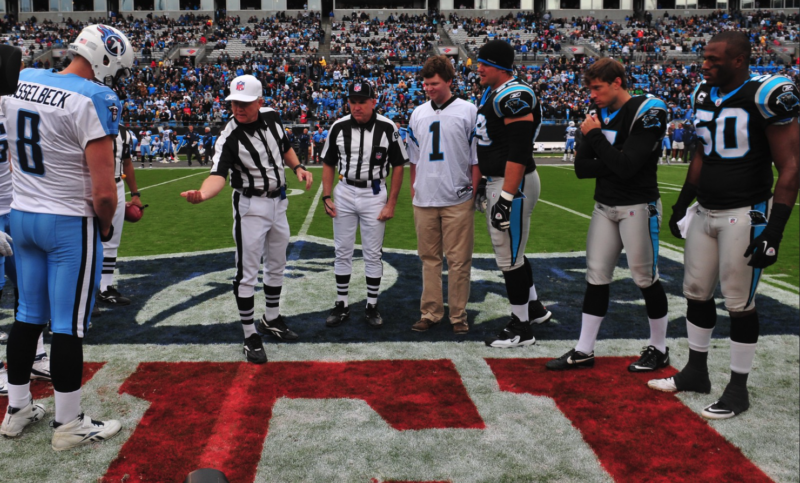
Discourse Definition
Discourse may refer to
- any form of language use, including
- nonverbal, written, visual, and spoken language
- an act of communication
- Discourse occurs when a writer or speaker or artist sends information — the meaning being conveyed — to an intended audience. Discourse is a byproduct of communication. It’s all the digital tracings — all of the signs and symbols, the prewriting and the drafts, and the conversations and texts — that people compose when they communicate with others
- an ideological act
- Summarizing the French philosopher Michel Foucault, Lessa (2006) defines discourse as “[s]ystems of thoughts composed of ideas, attitudes, and courses of action, beliefs, and practices that systematically construct the subjects and the worlds of which they speak.”
Discourse embodies the narratives we tell ourselves (and society tells us) about what exists? and what is possible? Discourses are embedded in social practices, institutions, and, depending on which discourses are silenced and which are celebrated, discourses can reflect who has the power to speak. Thus, discourse may be inclusive and open or discourse may be a way of oppressing others. Rather than being invariably emancipatory, discourse may also be limiting and controlling. Consider, e.g., the discourse of a dictator who says “Bow down or face the consequences!” So, discourse may be weaponized: discourse may be used to silence dissent and independent thought.
- Summarizing the French philosopher Michel Foucault, Lessa (2006) defines discourse as “[s]ystems of thoughts composed of ideas, attitudes, and courses of action, beliefs, and practices that systematically construct the subjects and the worlds of which they speak.”
- a way of categorizing types of writing based on linguistic and semantic properties
- The term discourse may be used to signify
- a particular type of writing such as a particular genre; the modes of discourse: narration, description, exposition, and argument; or the trappings of citation: summary, quotation, and paraphrase
- the writing and speaking produced by members of a particular discourse community, such as
- writing that addresses a particular topic, such as
- Political Discourse
- Religious Discourse
- a cultural narrative–an often repeated story or phrase, such as “If you don’t succeed, try again.” A reoccurring narrative structure such as the hero’s journey
- Example: In contemporary political discourse in the U.S., the American public can distinguish conservative discourse from liberal discourse; Fox News from CNN. When a talking point flashes on the TV — such as the border crisis — Americans already have a sense of what the legislators from both sides of the aisle will say when they take the podium and speak. Americans, at least those who change news channels and who are open to new information, are well schooled on the differences between the discourses of liberals and conservatives.
- The term discourse may be used to signify
- a type of power
- Discourse— particularly the ability to write stuff down and to have an archive —
- enables writers and speakers to have agency–to persuade and inform others. By engaging in acts of discourse — whether it’s writing a school assignment, a memo at work, or a reflective note you write to yourself — you are able to develop and share your ideas and knowledge
- empowers humanity to move from an oral culture to a literate culture–and now, to an electronic culture, to electracy (see — Rhetoric & Apparatus Theory)
- enables humanity to keep track of ongoing conversations on particular topics and research initiatives
- Discourse— particularly the ability to write stuff down and to have an archive —
- the fabric of reflection and thought; inner speech
- Lev Vygotsky (1967), a developmental psychologist working in the 1930s, theorized that thought finds form in language. Over time, as babies learn language, they move from crying and pointing to what they want to communicating it. According to this perspective, language becomes abbreviated, condensed, saturated with personal meaning, and goes “underground” as it becomes the voice we hear in the back of our heads, which Vygotsky called “inner speech”
- a subject of study, a curriculum.
Synonymous Terms
Depending on context, discourse may also be known as
- Text
- Writing
- Dialog/Talk
- Discussion/Conversation
- Rhetoric
Related Concepts: Discourse Community – Community of Practice; Felt Sense; Rhetorical Analysis; Rhetorical Reasoning; Semiotics: Sign, Signifier, Signified; Text, Composition; Textual Research.
Types of Discourse – Examples
The “conversation of humankind” may take innumerable forms, including but not limited to
- Non Verbal Discourse
- Visual Discourse
- Modes of Discourse
- Public Discourse
- Mass Media
- Composition
- Political Discourse
- Propaganda

Discourse and Discourse Communities – Communities of Practice
The term discourse may refer to different types of writing composed by different discourse communities, such as
- Writing in the Sciences
- Writing in the Social Sciences
- Writing in the Humanities
- Writing in the Arts
- Writing in the Professions
- Academic Writing

Discourse & Self & Peer Critique
One of the biggest challenges writers, speakers, and knowledge workers face is understanding how others may perceive their discourse.
As a human, you cannot know what you don’t know: we all have blind spots. Discourse that you consider innocuous may be perceived by others to be pernicious. Thus, it’s nearly always a good idea to share drafts of your works with colleagues who are capable of critical feedback.
References
Bruffee, K. (1984). Collaborative learning and the “Conversation of Mankind.” College English, 46(7), 635–652. https://doi.org/10.2307/376924
Lessa, I. (February 2006). Discursive struggles within social welfare: Restaging teen motherhood. The British Journal of Social Work. 36(2): 283–298. doi.org/10.1093/bjsw/bch256.
Oakeshott, M. (1962). Rationalism in politics. Basic Books, 1962, p. 199.
van Dijk, T. A. (1997). The study of discourse. In van Dijk, T.A., ed., Discourse as structure and process: A multidisciplinary introduction. Sage Publications Ltd. https://doi.org/10.4135/9781446221884
Vygotsky, L. S. (1962). Thought and language. MIT Press.






